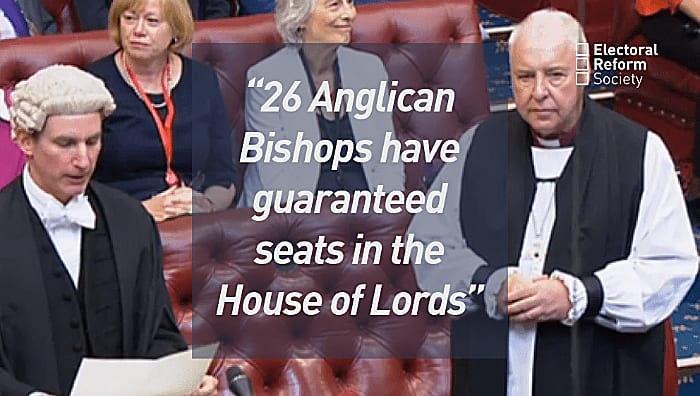
IN November the UK Government launched an Independent Faith Engagement Review, headed by the Director of the Conservative Christian Fellowship, Colin Bloom, above. The review into ‘how best the government should engage with faith groups in England’ concluded on December 11. The consultation prompted Professor John Radford, Emeritus Professor of Psychology at the University of East London, to pen the following piece.
It needs to be pointed out that, particularly in the last few decades, a great deal of rigorous research and informed debate has appeared on this matter. My own partial list of relevant publications runs to 2,000 words. It is not possible to attempt even a summary of this here; indeed it would be otiose, since anyone preparing a report such as this will already be familiar with it.
I am confident, however, that what I have to say is supported by appropriate work. I might add for the record that I have experience of psychological and historical research and (I may say without false modesty) a distinguished career in Higher Education, at all levels from student to senior management.
I wish to suggest that regard should be had to some principles that may be taken as fundamental to our liberal, democratic society. Perhaps the most basic is the general acceptance of the rule of law, applicable equally to all up to and including government itself, and subject to democratic control. From this it follows, inter alia, that no individual or group should be specially privileged as regards access to justice, or to participation in government, or to any services provided by the State and funded by general taxation – health, education, police and fire and so on.
Freedom of information and debate should always be the default condition, restricted by government only for genuine needs of national security. There should be no restrictions on personal beliefs, religious or not, nor on related practices provided these are within the law of the land.
Now it is quite clear, in the present context, that various religious groups and individuals enjoy exceptions to these principles. To start at the top, as it were, twenty-six bishops of the Church of England are automatically members of the House of Lords, the upper chamber of Parliament.
As is well known, membership of the Anglican Church has been steadily declining for some time and now stands at around 15 percent of the population.
The continuance of the Bench of Bishops as part of our legislature is indefensible. It is sometimes suggested that they should be balanced by senior members of other faiths; but obviously that would only compound the problem.

A different governmental issue is that of taxation. Churches as organisations are generally granted tax exemptions as charities. It is far from clear why religious organisations, with their inevitably disputable and divisive doctrines, should necessarily be considered as of public benefit, which is a condition of being classed as a charity under the Charities Act 2006 (amended 2011).
These particular issues perhaps do not attract very much general concern. One that does is that of “faith” schools. There can be no doubt that these are undesirable, on several grounds. First, selection of children on the basis of their parents’ religion violates the basic principle of equality as above. Second, in some areas parents are obliged to send their children to a faith school, against their wishes, as no other is available.
It is obviously impossible to provide accessible schools to match all parents’ religions or lack thereof; and it is wrong to privilege one group over all the rest. Third, it is not justifiable to support discriminatory schools through taxation paid by all. Fourth, ample evidence shows that it is educationally better, from the point of view of reducing prejudice, for children to mix with others without regard to their backgrounds.
Fifth, a faith school necessarily presents its particular beliefs as superior to others (else why have it at all?). But if one is better, all the others must be worse, which is not a desirable attitude. And, not a separate point but to illustrate, surely the sorry history of Northern Ireland is sufficient warning against religious divisions in education.
This leads me to some of the ways in which religious groups and practices can be positively harmful. The shocking accumulation of cases of child abuse within various Churches is now common knowledge. Of course it is not suggested that religion was the cause; but it is clear that various Churches and senior clerics consistently sought to conceal the facts, and put the reputation of their organisation before the welfare of the children. Religions cannot be above the law.
There are other examples of such harm, indeed it might well be argued that being brought up in one of the various extremely rigid sects is itself child abuse. Certainly many survivors of such rearing regard it as that. I’ll mention just two examples. In any other context, cutting off the foreskins of under-age boys, who must by definition be unable to give informed consent, for no medical reason, but with consequent pain and potentially dangerous (occasionally fatal) sequelae, would be child abuse; and the perpetrator would no doubt face imprisonment.
But as ritual circumcision it is apparently acceptable. Another, thankfully rarer, example is the refusal of parents who are Jehovah’s Witnesses, to allow blood transfusions to save a child’s life. In these cases and others we are told “we must respect other people’s religious beliefs”. I disagree. I respect other people’s right to hold beliefs, however much I consider them absurd. I don’t respect any practices that would otherwise be illegal or inhumane. The underlying point is this: a faith or belief, however strongly and sincerely held, cannot in itself be a justification.
More generally, the question is raised as to whether religions, “faiths” and their various activities, are in general beneficial to society. First, there is no doubt that many religions are felt as beneficial by many individuals; they provide both emotional (spiritual) and practical support. In the case particularly of the Anglican Church in England, it has provided a unique treasury of historic and beautiful architecture, and this should by all means be preserved, perhaps put to other community uses as the religious demand decreases. Indeed, much of our greatest music and art have been religious in inspiration; but I know of no evidence that composers and artists would not have been just as productive in other circumstances.
For society as a whole, we can compare the more religious ones with the less so, based on stated belief and amount of attendance. We can also rate countries on numerous factors that can be counted as indicating welfare, such as low crime rate, good education, health and social services, general expression of satisfaction with life and so on. The results are clear. Countries that rate highest on positive measures, come lowest on religious factors; and vice versa. Of course this does not show that religion causes the negative factors; but it does suggest rather convincingly that it is not a very good preventative, nor is it a requisite for a good society.
It is worth pointing out, in the present context, that at least one enquiry (British Social Attitudes Survey, September 2018), found that just over half of the population stated that they belonged to no religion. With younger people, ages 18-24, this rose to 70 percent. All such surveys are snapshots, and subject to sampling error. But it does appear that undue attention by Government to faith groups runs a risk of neglecting, perhaps alienating, around half the general population; and that this proportion seems likely to increase.
Questions about human behaviour very seldom have a simple yes/no answer. However, based on what is well established, my personal firm conclusion is that matters of faith should as far as possible be left to individuals. Government should neither support nor restrict any faith or religion, or lack thereof. It should, however, act to ensure that all citizens, and groups and organisations, should behave in accordance with the law, and be neither favoured nor penalised unequally compared to others.















